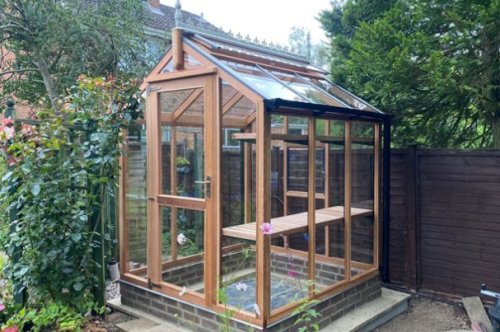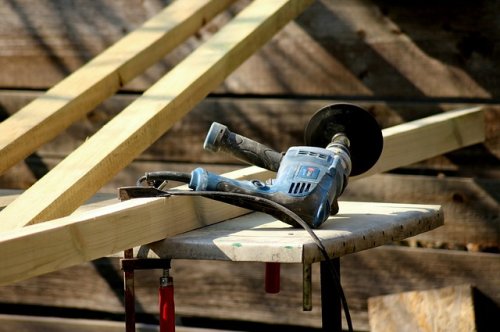Recycle My Old White Goods?

The majority of the waste in landfills consists of white items. You do not need to be a staunch environmentalist to agree that this situation is detrimental to the environment. Therefore, homes and enterprises must comprehend the benefits of recycling white appliances.
Household appliances are more of an investment and need than a luxury, and they are purchased with the intent that they would last longer. If they have been with you for a very long time and are causing you more problems than you can handle, it may be time to replace them. If your household appliances are still in good shape, you can also donate them.
If you intend to purchase new white goods, you must dispose of your old equipment in an eco-friendly manner. Therefore, you should insist on purchasing items designed for garbage recycling. It will make your appliances energy- and water-efficient, reduce landfill waste, conserve vital resources, and lessen the emission of greenhouse gases during garbage disposal.
White goods, commonly known as household appliances, are huge electrical equipment such as white appliances are ranges, freezers, dishwashers, heaters, and washing machines. This moniker originated from the white enamel coating used on these appliances in the past. Even though these items are now available in a range of colours, they are still referred to as white goods.mIn addition to reselling and recycling, you can also return it to shops or others who can reuse the metal in the products.
How can I dispose of my outdated appliances?
Skip the trash and begin giving, mending, and recycling instead. General trash cans may be intended to facilitate waste disposal, yet they are detrimental to the environment. The excessive use of skips is a major issue, which is why we have compiled the safest ways to dispose of your electrical trash.
Not Needing an Outdated Device? Give Them Up!
Are your older appliances still functional? Why not give them to a charity, organisation, or new owner? If the equipment is in fine working condition and could benefit someone else, you could donate it. Many charitable organisations, such as the British Heart Foundation, collect televisions, washing machines, and other items for free, which they subsequently sell in their stores. You only need to book online!
Donating your electronics might offer numerous advantages. It prevents resources from ending up in landfills, where thousands of tonnes of functioning white goods are discarded and the materials they contain are lost forever. Fridges, Washing Machines and Microwaves may typically be refurbished and reused because the majority of them are still functional.
A big benefit is that it is beneficial for people and the environment by reducing the demand for raw materials, minimising CO2 emissions, and providing inexpensive items to low-income households. Numerous organisations and individuals will appreciate your unwanted items.
Before Recycling, Repair Them
It is significantly better for your wallet and the environment to repair and fix your electronics instead of discarding them. With these four advantages, there is no reason not to attempt to repair your old devices.
- It will help you save money. Instead of purchasing new equipment, perform a simple repair.
- You'll save resources. Refurbishing obsolete electronics reduces the amount of discarded technology.
- You will acquire a new ability. Fixing will provide you with practical skills that can last a lifetime.
- It makes you feel fantastic! It is difficult to surpass the satisfaction you receive from a product that is as good as new, saves you money, and protects the environment.
How to Recycle Outdated Devices
There are numerous methods for recycling your electrical and electronic equipment. You can use recycling banks, supermarket collection stations, or even arrange for a pick-up from your home. If you select for pick-up, your appliances must be safely unplugged from the mains, gas, and water supply, and your freezers must be completely defrosted. Numerous companies, such as Argos, John Lewis, and IKEA, will pickup your products for a little cost. Typically, they collect refrigerators, freezers, tumble dryers, washing machines, and televisions.
Remember to remove batteries, bulbs, and personal information from smart devices and computers before recycling them. Then place them in secure bags until you can reach a recycling centre.
Where Can I Recycle My Old White Goods?
It's easy - simply use a recycle locator to find the recycling centres closest to you! You are certain to locate an appropriate recycling site in your neighbourhood, between store collections, recycle facilities, scrap merchants, and council pickup.
As part of their "bulky waste" collection service, municipalities will gladly take major equipment like as refrigerators and washing machines from the curb. Typically, you will be required to pay a fee, which can vary based on your location. Local recycling centres may charge a fee if you bring the items to them yourself, so it's important to determine which option is most advantageous.
How to Recycle Electrical Small Appliances?
Smaller electrical and electronic waste items can be disposed of with relative ease at roadside and supermarket collection sites, in-store at merchants, and recycle banks.
In addition to the aforementioned, numerous local organisations and charities may collect modest working electrical appliances to sell to low-income households. This means that you have a variety of possibilities for your little electrical goods! You may minimise your carbon footprint and protect the environment by simply donating, repairing, and recycling your electrical home appliances.







